Keeping Place: Reflections on the Meaning of Home Jen Pollock Michel (IVP) $16.00
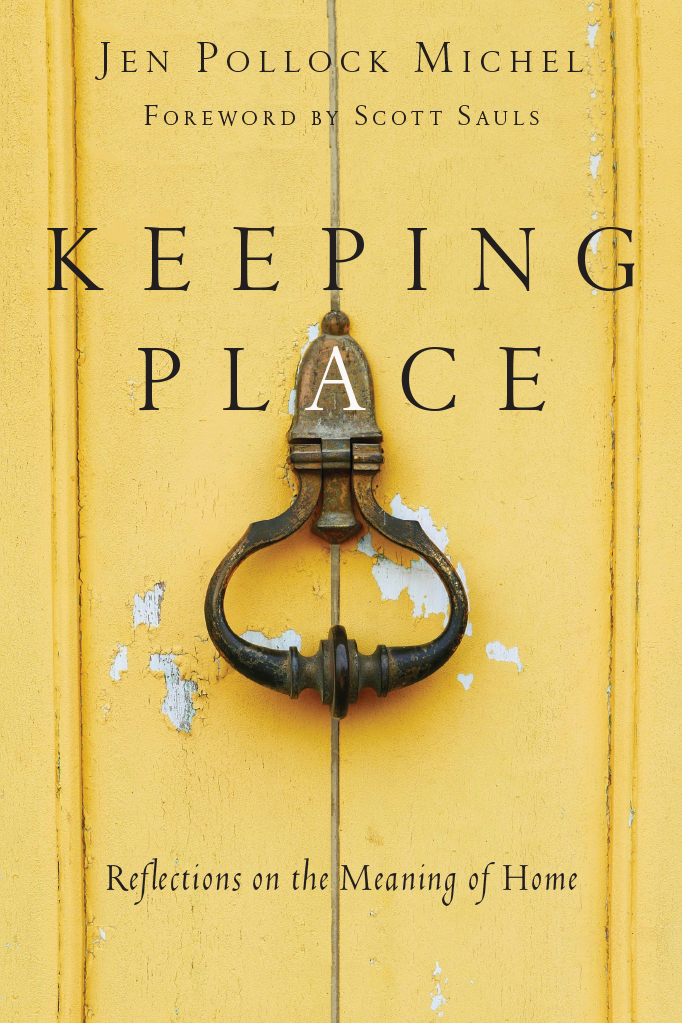 From the first page, this book utterly captivated me, as Jen Pollock Michel beautifully tells of an international group of expats sharing a Christmas meal around her table in Toronto where the vignettes speak of the longing for home. Besides the obvious pathos of these tender stories, I recognized that this was going to be an amazing book, beautifully written, full of memoir and storytelling and more profound than perhaps some readers may expect in a book about home-making. You will be hooked and eager to turn the pages!
From the first page, this book utterly captivated me, as Jen Pollock Michel beautifully tells of an international group of expats sharing a Christmas meal around her table in Toronto where the vignettes speak of the longing for home. Besides the obvious pathos of these tender stories, I recognized that this was going to be an amazing book, beautifully written, full of memoir and storytelling and more profound than perhaps some readers may expect in a book about home-making. You will be hooked and eager to turn the pages!
Maybe it is because I heard Brian Walsh, another guy from Toronto, years ago, speak about the angst of all of us feeling displaced by the forces of modernity that I am attuned to stories of exile and longing. He was one of the first to alert us to this motif in Scripture as a way of understanding our own times, inviting us to think about redemptive home-coming. Brian’s profound insights about home and home-making found their way into a big, co-authored book, Beyond Homelessness: Christian Faith in a Culture of Displacement (Eerdmans; $29.00.)
Or maybe it is because we just saw the powerful movie Lion, a film about a college-age young man who was raised by adoptive parents in Australia, searching literally for his long-forgotten home and family in India. The longing for home is powerfully portrayed in this beautiful movie, based on the wonderful memoir by Saroo Brierley, A Long Way Home (Berkley Books; $16.00.)
Or maybe it is because this is a theme I have written about before, naming books about a sense of place, about how our personal cultural homesickness leads to often grief and dysfunction, and, as documented in Beyond Homelessness, unsustainable economic and environmental policies. One could make a case that much of the recent controversy and social concern about immigration policy involves anxiety about who is in and who is out, about belonging, about identity. For a captivating recent memoir about this experience of displacement, searching for home, being a sojourner in this world, living among refugees please see At Home in Exile: Finding Jesus Among My Ancestors and Refugee Neighbors by Russell Jeung (Zondervan; $17.99.)
Searching for home is a universal human calling, it seems, and since we all live East of Eden, all but the most numb get choked up when we hear the pathos of a good version of the song telling of Dorothy’s Kansas longings, that begins Somewhere, over the rainbow…
I’ll admit I knew I’d Keeping Place when I first turned to the endnotes and saw she early on cited Jayber Crow, the great American novel about place by Saint Wendell Berry and the eloquent book Longing for Home by the Presbyterian wordsmith Frederick Buechner. Of course, I knew I’d like a book that cites another personal favorite, Home: A Short History of an Idea by Witold Rybczynski (Penguin; $16.00), the wise and very popular writer of books about architecture.
Keeping Place itself is such an evocative title: all the markers indicated it would be a fabulous book, an important book. And it most certainly is — both fabulous and important!
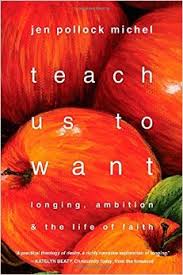 I also knew I was going to like this book because the author, Jen Pollock Michel, is, I know, a serious thinker, a deeply spiritual woman, and a great writer; her previous book Teach Us to Want: Longing, Ambition & the Life of Faith (IVP; $16.00) is a rumination on desire, on ambition, on a woman’s search for purpose and identity, a book we named as one of the very best Best Books of 2015 (and it won the coveted Christianity Today Best Book.)
I also knew I was going to like this book because the author, Jen Pollock Michel, is, I know, a serious thinker, a deeply spiritual woman, and a great writer; her previous book Teach Us to Want: Longing, Ambition & the Life of Faith (IVP; $16.00) is a rumination on desire, on ambition, on a woman’s search for purpose and identity, a book we named as one of the very best Best Books of 2015 (and it won the coveted Christianity Today Best Book.)
That book, like this new one, has a DVD curriculum that can be used, an indication that the publisher not only believes in the content, but finds the author a compelling communicator. IVP doesn’t do many DVDs so that is significant; having Jen as a speaker (well, almost) in your small group, book club, or adult ed class via video is pretty great. Each of the two companion DVDs for Teach Us To Want and Keeping Place sell for just $20.00 and the discussion guide in the back of the paperback book serves as a guide for the DVD curriculum, too.
The literary structure of the brand new Keeping Place: Reflections on the Meaning of Home is clever and fun, too. Pollock Michel arranges her studies of the “most fundamental human longing” in a memoir that bounces around geographically; it isn’t fully chronological. In fact, Michel visits some of her previous childhood homes with her mother and daughter on a road-trip worthy story which allows for some lively reports of stuff that happens along the way, but, more, allows for memories to be recovered, for stories to unfold as she recalls old moments of her rather nomadic upbringing.
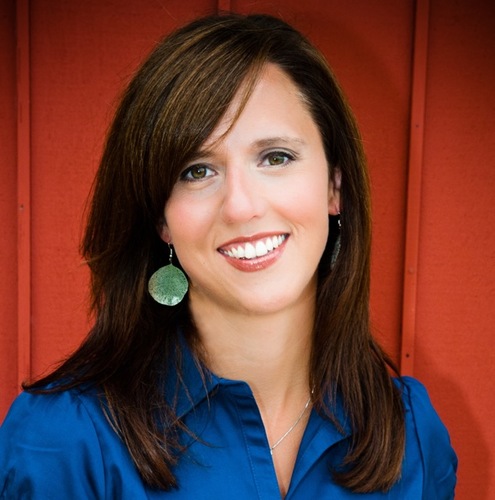 Jen’s father died, suddenly, rather young (and her brother died later that year) so there is great grief associated with some old locations. In a brief scene that oddly gripped me as almost devastating, she visits Kent, Ohio, where her father was working on a dissertation. She visits the Kent State University library, trying to learn if he had finished and published his work – she tries various configurations of his first name, his middle name, and the like. The sadness and exhaustion of that era is so great, it seems, that her mother doesn’t know if her husband ever published his dissertation. For all of us, I am sure, some memories are a blur, and not all homes are lovely. Some are not even safe.
Jen’s father died, suddenly, rather young (and her brother died later that year) so there is great grief associated with some old locations. In a brief scene that oddly gripped me as almost devastating, she visits Kent, Ohio, where her father was working on a dissertation. She visits the Kent State University library, trying to learn if he had finished and published his work – she tries various configurations of his first name, his middle name, and the like. The sadness and exhaustion of that era is so great, it seems, that her mother doesn’t know if her husband ever published his dissertation. For all of us, I am sure, some memories are a blur, and not all homes are lovely. Some are not even safe.
So Keeping Places travels around, giving a subtle, structural indication that having a home is not necessarily about, as Scott Russell Saunders writes, “staying put.” I suspect strongly that Michel will deny the “home is where ever you lay your head” nonsense, this distorted valorization of being on the road – thank you Jack Kerouac for that ruinous counter-cultural idea – and invites us to take our places serious. The “meaning of home” in the title, of course, is about “keeping place.” (I thinking keeping evokes “keeping house” which should imply stewardly care, not necessarily forever “staying put.”) She herself doesn’t have just one place, and most of us don’t either. In fact, one chapter is called “Border Crossings: On (Not) Staying Put.” So there’s that.
One of the things other than the moving stories, good writing, and poignant memories that I like about Keeping Place is that it explores fairly widely some stuff that is often in the background of our home life, holding things up to the light, inviting us to consider what we might otherwise not think about. It is an important reminder, to be self-reflective, and it makes for a fun book.
For instance, there is a wonderful chapter on time; she writes thoughtfully about the daily nature of marriage (with shades of Tish Harris’s The Liturgy of the Ordinary) and “the routine work of I Do.” There is a good discussion helping us get beyond the disdain of housework, what Caitlin Flanagan writes about in To Hell With All That (a funny book I promoted to some consternation a few years back.) Of course there’s a great chapter on meals called “Saying Grace: Feasting Together” that makes me envious.
A few of these things are so common – housework, meals, the pace of life – that we don’t think about them, but when we do, we know she is right: these are avenues for spiritual formation, holy placed to embody grace.
But other things she proposes may be new for some of us, even radical. For instance, Jen Pollock Michel writes significantly and insightfully about the role of the church family in helping us with our own families. Drawing on Wesley Hill’s must-read Spiritual Friendship: Finding Love in the Church… and the kind of model proposed in books like The New Parish and Slow Church. She reminds us that the domestic term “household” is a metaphor the apostle Paul uses to describe the local church. In writing about how parents are not alone in caring for their children, she quotes James K.A. Smith who reminds us that “at a child’s baptism bloodlines are relativized, and the nuclear family rejects the modern domestic ideal of the family as ‘closed, self-sufficient, autonomous unit.'” She cites Smith citing the Orthodox author Alexander Schmemann (who wrote For the Life of the World.) The upshot is that we cannot parent alone.
It does, after all, take a village, Biblically speaking.
She writes,
I doubt my unmarried friends know my gratitude for their friendship – how they willingly abide the din of dribbling basketballs in the from hallway to linger of Saturday brunch and easily forgive long stretches of unintended silence when I fail to call. I imagine they see themselves in the role of taker rather than giver in the relationship, but I’d like to assure them that their presence in our home immediately changes the dynamic of our family, especially now that there are teenagers in the house, who are nearly catatonic with boredom that is their parents.
She speaks for all of us when she says,
The church is home and part of our daily housekeeping is learning to belong to one another. If this is good news for the unmarried, it is also good news for me. The nuclear family cannot bear the full weight of human hope and expectation, struggle and need. It’s too fragile and human an entity. As a married woman with children, I need relational connection and commitment beyond the circle of my immediate family, both for myself as well as for the sake of my family.
Like her church in Toronto, which prays in their weekly liturgy for their city, she realizes that her family and her home are for the sake of the world. She quotes Amy Sherman from her must-read, remarkable book on work, Kingdom Callings (and, I might add, it is a portion that is also found in Sherman’s wonderful, brief chapter in my own collection Serious Dreams) which riffs on Proverbs 11:1.
Sherman tells of some churches doing good work in their city and continues:
Are we engaged in efforts that are relevant to the groans of creation and the cries of the poor? Are we producing disciples whose work is contributing to profound transformations that set people dancing in the streets? Have we joined King Jesus in his grand, sweeping missions of restoration? In cooperation with him, are we bringing foretastes of justice and shalom?
Jen Pollock Michel provocatively then writes,
These are questions for the church related to housekeeping. They remind us that we make a home for the wandering lost in our cities not simply by throwing open our church doors but by identifying and attending to their most desperate needs. If we want to sing the stories of home, let’s make a real, dry place out of the rain for our closest neighbors.
And so it goes, from travelogue and memoir to some serious Bible study to citing important authors about the sociology of home, the politics of place, the rhythms of rest, and stewardly economics of house-keeping. She writes nicely about finding furniture that suits their modest home, she tells of efforts to discern a spirituality of housework, and she frames these teachings with a big picture of God’s redemptive work in the world.
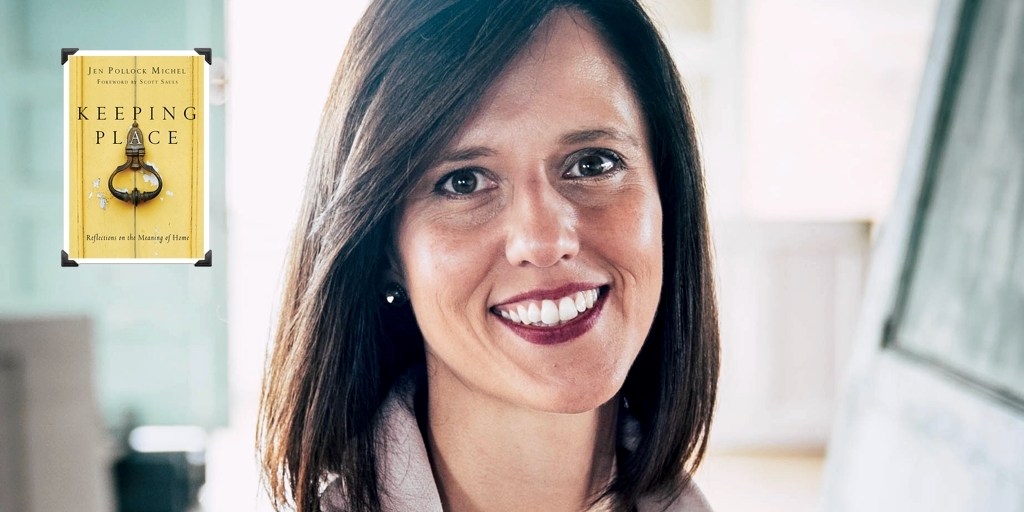
Of course, in any book that offers a Biblically Christian vision of the meaning of home, framed by the longing for a true home (shades of Lewis there, eh?) Michel has to deal with the question of whether our ultimate home is heaven or Earth. She’s thoughtful, helpful, and faithful in this, drawing – just for instance – on N.T. Wright’s Surprised by Hope and it’s singular vision that God’s intent is to restore the planet as part of Christ’s redemptive healing of all things in the whole cosmos. In her chapter “The City of God: Finally Home” she quotes a portion of a poem I did not know by G.K. Chesterton (“The House of Christmas” written in 1912.) Wow!
It invites a few pages of ponderings about justice and healing and hope and judgement – think The Great Divorce and relevant portions of The Weight of Glory. It’s a powerful, good chapter, and it reminds me that this book shifts seamlessly from reflections on nostalgia and memory of childhood homes to advice on daily housekeeping tasks to Biblical teaching on geography and place and sojourning and mission. God’s sweeping narrative and the promise of fulfillment frame all she writes about, whether it is a bit of analysis of our exceptional mobility, a reminder of the ways consumerism has shaped our views of home and house-keeping chores, or some lovely prose about cooking (or not) she has this big picture of Home in the background.
“The longing for home is associated with memory: a paradise was in fact lost. It looks ahead, inspiring our hope for inhabiting the eternal City of God. Redeemed humanity has a keeping place.”
Jen Pollock Michel is drawing here on her previous book, Teach Us To Want: Longing, Ambition, and the Life of Faith, reminding us that much depends on what we most long for and whether we’ve allowed God to purify our own longings and wants. Our own deepest desires — as Jamie Smith as so powerfully explored in You Are What You Love — must be reformed and properly shaped in order to truly want the right stuff in the right way. Smith makes a good case that much of this recalibration of our desires happens through symbolic liturgy and worship and ritual habit (not only or even mostly intellectual argument, since we can hardly “think our way to a new way of living.”) As the last portions of his widely read book pushes us towards rituals that shape public theology — lived, embodied, incarnate, quotidian – so too does this lovely, fine rumination on the homemaking God who offers welcome into a family, that sends us into a place. Yes, Keeping Place is a book about home, but it is also a very good book about spiritual formation and Kingdom vision and living well in a broken culture, “lovers in a dangerous time” as one Canadian singer once put it.
I especially like that Keeping Place does not commend some romanticized, evangelical vision of home life and I am glad it does not spout platitudes or dispense advise on how to successfully focus on the family. As it says on the back cover, even, “Keeping Place offers hope to the wanderer, help to the stranded, and a new vision of what it means to live today with our longings for an eternal home.”
Men and woman who care about the world, who are making sense of their own lives, who have even an inchoate sense of longing for sustainable neighborhoods and a sense of place in our hot-wired, mobile culture, will love the books of Jen Pollock Michel, her first one (Teach Us To Want) and this brand new one, Keeping Place: Reflections on the Meaning of Home. Why not get some folks together in your house and start a reading group? Or buy the books and use the DVDs, too? We very highly recommend them both.
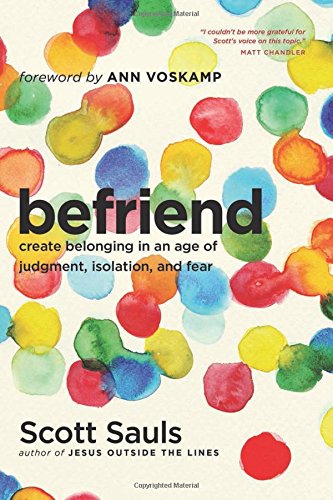 There’s more I could say and I’d bet there’s a lot of good reviews on line (I have intentionally avoided reading any, yet, but now that I’ve shared my earnest heart of how good this is, I’ll explore what others might have written.) I might note there is a sizable foreword by Scott Sauls, which is a tremendous move, since his own latest book, Befriend: Create Belonging in an Age of Judgement, Isolation and Fear dovetails nicely with Michel’s since it is a lovely and challenging guide to be less judgmental and more inviting with a hospitable sense of building relationships. For now, we do hope you order this from us at our BookNotes discount. The button below takes you to our secure order form page.
There’s more I could say and I’d bet there’s a lot of good reviews on line (I have intentionally avoided reading any, yet, but now that I’ve shared my earnest heart of how good this is, I’ll explore what others might have written.) I might note there is a sizable foreword by Scott Sauls, which is a tremendous move, since his own latest book, Befriend: Create Belonging in an Age of Judgement, Isolation and Fear dovetails nicely with Michel’s since it is a lovely and challenging guide to be less judgmental and more inviting with a hospitable sense of building relationships. For now, we do hope you order this from us at our BookNotes discount. The button below takes you to our secure order form page.
HERE OTHER BOOKS THAT CAME TO MIND AS I READ AND WROTE ABOUT
Keeping Place: Reflections on the Meaning of Home
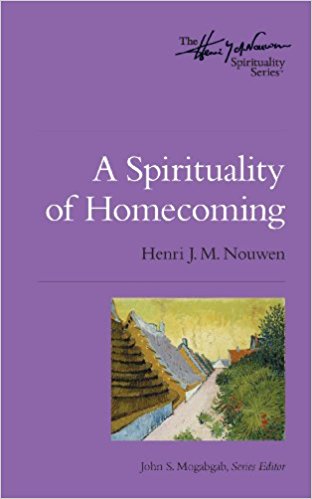 A Spirituality of Homecoming Henri Nouwen (Upper Room Books) $7.99 I hope you know this little one, from the lovely set of 5 small Nouwen books in the “Henri Nouwen Spirituality series” nicely produced by Upper Room. This invites us to respond to the deep love of God that shows us our truest home.
A Spirituality of Homecoming Henri Nouwen (Upper Room Books) $7.99 I hope you know this little one, from the lovely set of 5 small Nouwen books in the “Henri Nouwen Spirituality series” nicely produced by Upper Room. This invites us to respond to the deep love of God that shows us our truest home.
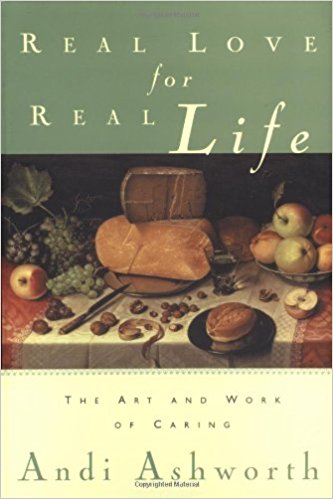 Real Love for Real Life: The Art and Work of Caring Andi Ashworth (Rabbit Room Press) $12.00 One of our very favorite books. It is on the art of home-making, written mostly for woman, but a great read for anyone. I can’t tell you how intelligent and graceful and thoughtful this is. Highly recommended and dearly beloved.
Real Love for Real Life: The Art and Work of Caring Andi Ashworth (Rabbit Room Press) $12.00 One of our very favorite books. It is on the art of home-making, written mostly for woman, but a great read for anyone. I can’t tell you how intelligent and graceful and thoughtful this is. Highly recommended and dearly beloved.
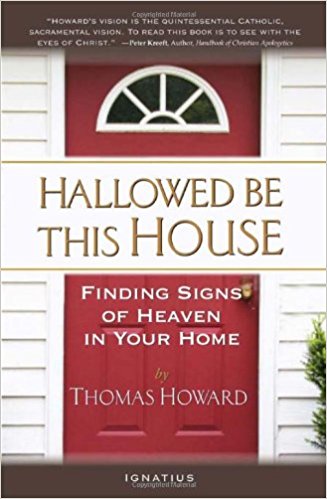 Hallowed Be This House: Finding Signs of Heaven in Your Home Thomas Howard (Ignatius) $14.95 A conservative Roman Catholic walks through the house, seeing signals of transcendence in each room. Very, very, impressive, by a very classy writer you should know.
Hallowed Be This House: Finding Signs of Heaven in Your Home Thomas Howard (Ignatius) $14.95 A conservative Roman Catholic walks through the house, seeing signals of transcendence in each room. Very, very, impressive, by a very classy writer you should know.
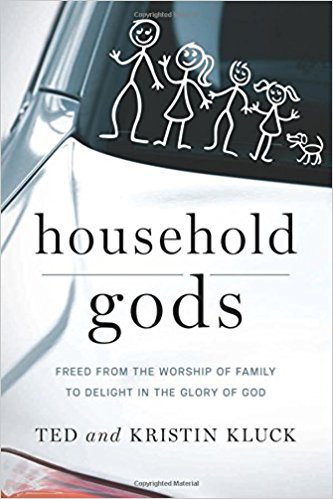 Household Gods: Freed from the Worship of Family to Delight in the Glory of God Ted and Kristin Kluck (NavPress) $14.99 A bold and interesting evangelical writer noting that we have made home and successful family life into an idol that we must break free from. Praise the Lord that somebody from a fairly conservative tradition is able to put this in perspective. For some of us, this will be very challenging. For others, we might rejoice saying “it’s about time sombody had the wisdom to say this.” Read it and pass it around.
Household Gods: Freed from the Worship of Family to Delight in the Glory of God Ted and Kristin Kluck (NavPress) $14.99 A bold and interesting evangelical writer noting that we have made home and successful family life into an idol that we must break free from. Praise the Lord that somebody from a fairly conservative tradition is able to put this in perspective. For some of us, this will be very challenging. For others, we might rejoice saying “it’s about time sombody had the wisdom to say this.” Read it and pass it around.
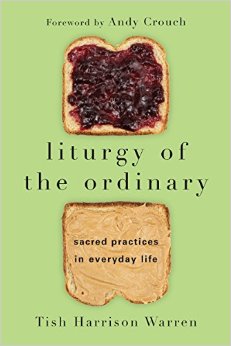 The Liturgy of the Ordinary: Sacred Practices in Everyday Life Tish Harrison Warren (IVP) $16.00 This almost goes without saying, and I hope you don’t find it so obvious to have me list it here — these books are both so very good and it seems that Jen Michel and Tish Warren ought to be fast friends. Besides that they both go by three names, they are smart, deeply interested in the spirituality of the ordinary, and see home and place as a key location for spiritual formation. If you care at all about faithful living, about the “every square inch” vision of God claiming all of life, of exploring this topic of home and place and God and life, this book is without a doubt a must-read. It is beautiful, fun, and so very insightful. Read it in tandem with Keeping Place and you’ll see what I mean. Somebody ordered both of these on line from us the other day and it made my day. Praise be to God.
The Liturgy of the Ordinary: Sacred Practices in Everyday Life Tish Harrison Warren (IVP) $16.00 This almost goes without saying, and I hope you don’t find it so obvious to have me list it here — these books are both so very good and it seems that Jen Michel and Tish Warren ought to be fast friends. Besides that they both go by three names, they are smart, deeply interested in the spirituality of the ordinary, and see home and place as a key location for spiritual formation. If you care at all about faithful living, about the “every square inch” vision of God claiming all of life, of exploring this topic of home and place and God and life, this book is without a doubt a must-read. It is beautiful, fun, and so very insightful. Read it in tandem with Keeping Place and you’ll see what I mean. Somebody ordered both of these on line from us the other day and it made my day. Praise be to God.
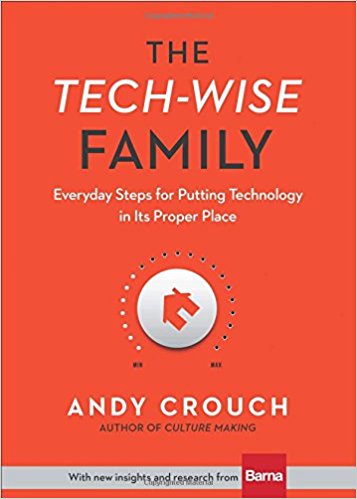 The Tech-Wise Family: Everyday Steps for Putting Technology in Its Proper Place Andy Crouch (Baker) $13.99 If there is one small fault with my first perusal of Keeping Place is that I didn’t notice Jen Michel talking much about the impact of our digital culture on our sense of place or how stability in the home may demand thinking in creative ways about what to make of our virtual realities, screens and devices. Andy Crouch is the perfect guy to help us, here and this is without a doubt the most important book about family life this year. (Yes, I’ll affirm it now: like Keeping Place, Crouch’s Tech-Wise Family will surely be named as one of the Best Books of 2017!) Short and insightful, it offers a gentle critique of our fixation with technology and pushes us towards embodiment, even recommending cooking together, inspired by Father Robert Capon’s glorious theological cookbook, Supper of the Lamb. Want to follow up or read something along-side Jen Michel’s Keeping Place. Read this.
The Tech-Wise Family: Everyday Steps for Putting Technology in Its Proper Place Andy Crouch (Baker) $13.99 If there is one small fault with my first perusal of Keeping Place is that I didn’t notice Jen Michel talking much about the impact of our digital culture on our sense of place or how stability in the home may demand thinking in creative ways about what to make of our virtual realities, screens and devices. Andy Crouch is the perfect guy to help us, here and this is without a doubt the most important book about family life this year. (Yes, I’ll affirm it now: like Keeping Place, Crouch’s Tech-Wise Family will surely be named as one of the Best Books of 2017!) Short and insightful, it offers a gentle critique of our fixation with technology and pushes us towards embodiment, even recommending cooking together, inspired by Father Robert Capon’s glorious theological cookbook, Supper of the Lamb. Want to follow up or read something along-side Jen Michel’s Keeping Place. Read this.
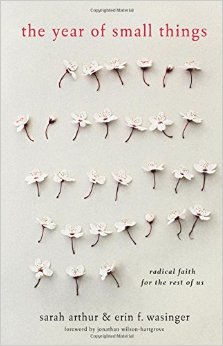 The Year of Small Things: Radical Faith for the Rest of Us Sarah Arthur & Erin F. Wasinger (Brazos Press) $17.99 I so loved this wonderfully written book, and promoted it when it first came out this past Winter. It’s a charming, provocative, expertly crafted, fun and challenging memoir of two families who pledge to support one another as they take baby steps (and some not-so-baby-steps, you may think) to be more faithful, more caring, more committed to the ways of Jesus in this crazy world. What does home-life look like when couples bond in friendship and supportive community to push one another on to do greater things, daily steps of intentional discipleship? This is a great, great book, sure to inspire your own risk-taking baby steps and evoke good conversation among serious Christian friends. Read it and you’ll see why I thought of it while reading Keeping Place.
The Year of Small Things: Radical Faith for the Rest of Us Sarah Arthur & Erin F. Wasinger (Brazos Press) $17.99 I so loved this wonderfully written book, and promoted it when it first came out this past Winter. It’s a charming, provocative, expertly crafted, fun and challenging memoir of two families who pledge to support one another as they take baby steps (and some not-so-baby-steps, you may think) to be more faithful, more caring, more committed to the ways of Jesus in this crazy world. What does home-life look like when couples bond in friendship and supportive community to push one another on to do greater things, daily steps of intentional discipleship? This is a great, great book, sure to inspire your own risk-taking baby steps and evoke good conversation among serious Christian friends. Read it and you’ll see why I thought of it while reading Keeping Place.
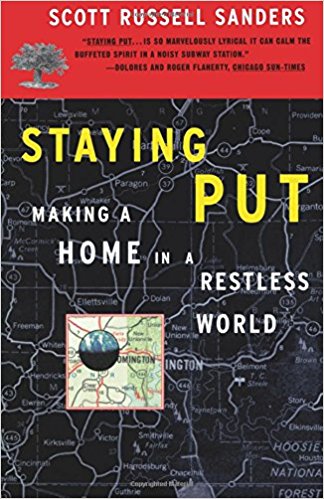 At Home in the World: Reflections on Belonging While Wandering the Globe Tsh Oxenreider (Thomas Nelson) $22.99 What a thrilling memoir of travel; hovering around this fun, new book is the question of how to be at home while away, the tension between settling down and going forth. We sold her earlier, quite classy book Notes from a Blue Bike and she has matured as a writer and offered even wilder adventures, here. As it says on the cover, this is “an adventure across 4 continents, with 3 kids, 1 husband, and 5 backpacks. Really fun.
At Home in the World: Reflections on Belonging While Wandering the Globe Tsh Oxenreider (Thomas Nelson) $22.99 What a thrilling memoir of travel; hovering around this fun, new book is the question of how to be at home while away, the tension between settling down and going forth. We sold her earlier, quite classy book Notes from a Blue Bike and she has matured as a writer and offered even wilder adventures, here. As it says on the cover, this is “an adventure across 4 continents, with 3 kids, 1 husband, and 5 backpacks. Really fun.
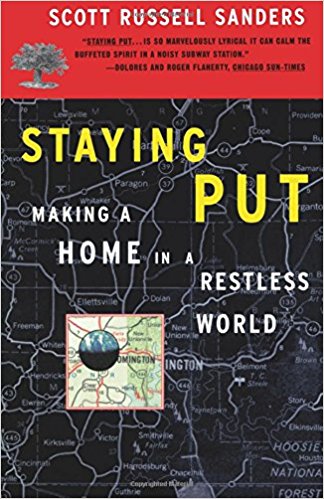 Staying Put: Making a Home in a Restless World Scott Russell Sanders (Beacon) $19.95 One of the truly great American writers, a delightful and moving set of literary essays about home. Imagine if Wendell Berry was a lived not on a farm in Kentucky but in a small town in the Mid-West. Thoughtful and wise and truly eloquent. This is a collection to dip in to and enjoy for a lifetime.
Staying Put: Making a Home in a Restless World Scott Russell Sanders (Beacon) $19.95 One of the truly great American writers, a delightful and moving set of literary essays about home. Imagine if Wendell Berry was a lived not on a farm in Kentucky but in a small town in the Mid-West. Thoughtful and wise and truly eloquent. This is a collection to dip in to and enjoy for a lifetime.
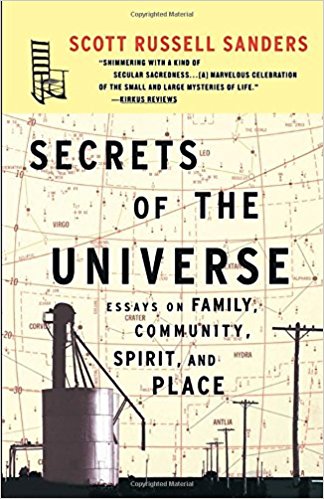 Secrets of the Universe: Essays on Family, Community, Spirit and Place Scott Russell Sanders (Beacon) $18.00 Another remarkable book by the esteemed Mid-Western memoirist. I hope you know this author. Don’t miss it. One reviewer (editor of the Best American Essays) says “Scott Sanders knows in his bones what it means to write the personal essay: it means to take risks. These are personal essays in the best sense of personal — candid, intimate, thoughtful, individual.”
Secrets of the Universe: Essays on Family, Community, Spirit and Place Scott Russell Sanders (Beacon) $18.00 Another remarkable book by the esteemed Mid-Western memoirist. I hope you know this author. Don’t miss it. One reviewer (editor of the Best American Essays) says “Scott Sanders knows in his bones what it means to write the personal essay: it means to take risks. These are personal essays in the best sense of personal — candid, intimate, thoughtful, individual.”
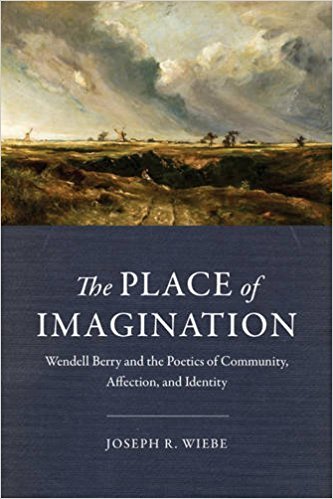
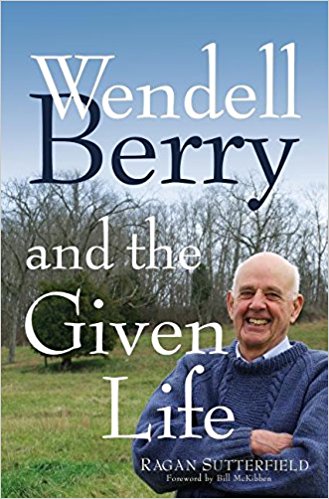 The Place of Imagination: Wendell Berry and the Poetics of Community, Affection, and Identity Joseph Wiebe (Baylor University Press) Well, there are any number of important studies of Berry’s fiction, poetry, and non-fiction, and this hones in on his affection for place. Seriously, this is a major bit of literary criticism, incredibly well documented from Berry’s work. Less pricey and more accessible, see, of course, the great new overview of Berry by Ragan Sutterfield called Wendell Berry and the Given Life (Franciscan Media; $22.99.) What a beautiful, insightful, truly valuable book!
The Place of Imagination: Wendell Berry and the Poetics of Community, Affection, and Identity Joseph Wiebe (Baylor University Press) Well, there are any number of important studies of Berry’s fiction, poetry, and non-fiction, and this hones in on his affection for place. Seriously, this is a major bit of literary criticism, incredibly well documented from Berry’s work. Less pricey and more accessible, see, of course, the great new overview of Berry by Ragan Sutterfield called Wendell Berry and the Given Life (Franciscan Media; $22.99.) What a beautiful, insightful, truly valuable book!
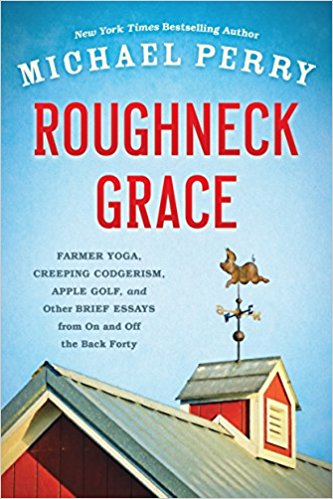 Roughneck Grace: Farmer Yoga, Creeping Codgerism, Apple Golf, and Other Brief Essays from On and Off the Back Forty Michael Perry (Wisconsin Historical Society) $18.95 Beth and I both have agreed this is our favorite book these days, so nicely, nicely written, with so many clever (ad hilarious) turns of phrases, warm and earnest and profound, in a roughneck sort of way. It is a wonder. Short pieces about the author’s Wisconsin life which is not quite a farming one, even if he does have a back forty, tractors and some chickens, sometimes. Wholesome, funny, and so darn interesting. Read his larger books, from Population 485 to Coop to Truck and the essay collection Off Main Street, and more. You’ll thank us with a big ol’ country smile.
Roughneck Grace: Farmer Yoga, Creeping Codgerism, Apple Golf, and Other Brief Essays from On and Off the Back Forty Michael Perry (Wisconsin Historical Society) $18.95 Beth and I both have agreed this is our favorite book these days, so nicely, nicely written, with so many clever (ad hilarious) turns of phrases, warm and earnest and profound, in a roughneck sort of way. It is a wonder. Short pieces about the author’s Wisconsin life which is not quite a farming one, even if he does have a back forty, tractors and some chickens, sometimes. Wholesome, funny, and so darn interesting. Read his larger books, from Population 485 to Coop to Truck and the essay collection Off Main Street, and more. You’ll thank us with a big ol’ country smile.
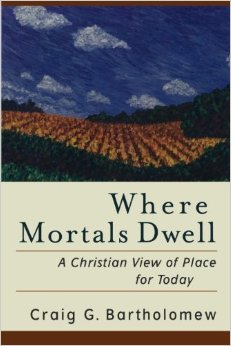 Where Mortals Dwell: A Christian View of Place for Today Craig Bartholomew (Baker Academic) $32.00 I’m glad Jen Pollock Michel cites this a time or two as it is the definitive theological study on place. As we said in our BookNotes review when it first came out, it includes history, philosophy, theology, geography, all in an extraordinary bit of scholarly enrichment from what some call a reformational worldview. There is nothing like it in print, extraordinary. Bartholomew, by the way, recentlly did a major work on Kuyperian theology, and has a brand new one coming co-written by Bob Goudzwaar, Beyond the Modern Age. Genius.
Where Mortals Dwell: A Christian View of Place for Today Craig Bartholomew (Baker Academic) $32.00 I’m glad Jen Pollock Michel cites this a time or two as it is the definitive theological study on place. As we said in our BookNotes review when it first came out, it includes history, philosophy, theology, geography, all in an extraordinary bit of scholarly enrichment from what some call a reformational worldview. There is nothing like it in print, extraordinary. Bartholomew, by the way, recentlly did a major work on Kuyperian theology, and has a brand new one coming co-written by Bob Goudzwaar, Beyond the Modern Age. Genius.
 No Home Like Place: A Christian Theology of Place Leonard Hjalmarson (Urban Loft Publishing) $18.99 If one is not ready yet to tackle the must-read Where Mortals Dwell this is a bit more accessible and has a few more moments that make it passionately clear why we should care about this topic. Explored through the lens of neighborhood-ish missional church outreach, it is urgent and very, very good. To “keep place” as Pollock Michel invites us to do in our home-life, we simply must think about this bigger sense of place.
No Home Like Place: A Christian Theology of Place Leonard Hjalmarson (Urban Loft Publishing) $18.99 If one is not ready yet to tackle the must-read Where Mortals Dwell this is a bit more accessible and has a few more moments that make it passionately clear why we should care about this topic. Explored through the lens of neighborhood-ish missional church outreach, it is urgent and very, very good. To “keep place” as Pollock Michel invites us to do in our home-life, we simply must think about this bigger sense of place.
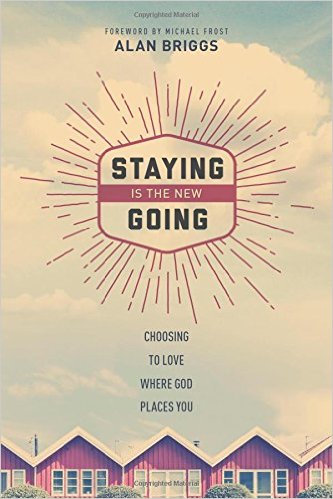 Staying is the New Going: Choosing to Love Where God Places You Alan Briggs (NavPress) $14.99 I have said that the forward by Michael Frost on two kinds of American literature (staying vs going) is itself worth the price of the book, but Briggs does such a good job making this topic so interesting, I sometimes say this is the first book to read if one is approaching the topic of place. Very inspiring, full of insight and charm and, frankly, is a transformational book. Can we learn to love where God has put us? Game-changing!
Staying is the New Going: Choosing to Love Where God Places You Alan Briggs (NavPress) $14.99 I have said that the forward by Michael Frost on two kinds of American literature (staying vs going) is itself worth the price of the book, but Briggs does such a good job making this topic so interesting, I sometimes say this is the first book to read if one is approaching the topic of place. Very inspiring, full of insight and charm and, frankly, is a transformational book. Can we learn to love where God has put us? Game-changing!
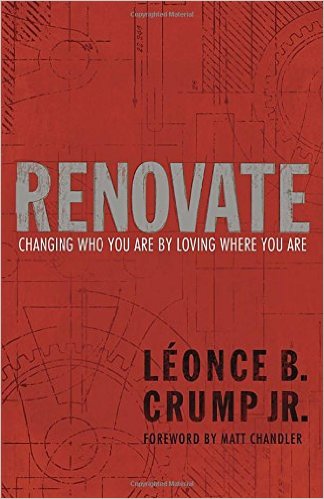 Renovate: Changing Who You Are By Loving Where You Are Leonce Crump (Multnomah) $14.99 I have touted this nearly everywhere we’ve gone this past yea; it is a passionate, Biblically-solid study of why place matters in the Biblical narrative, how God’s promises to restore the whole of creation, and showing you how that can inform your affection for your own places. And what can happen as we are transformed by learning to love well. Crump tells some of his own story of allowing God to transform his attitude as he fall in love with his new home in Atlanta Georgia. Very highly recommended!
Renovate: Changing Who You Are By Loving Where You Are Leonce Crump (Multnomah) $14.99 I have touted this nearly everywhere we’ve gone this past yea; it is a passionate, Biblically-solid study of why place matters in the Biblical narrative, how God’s promises to restore the whole of creation, and showing you how that can inform your affection for your own places. And what can happen as we are transformed by learning to love well. Crump tells some of his own story of allowing God to transform his attitude as he fall in love with his new home in Atlanta Georgia. Very highly recommended!
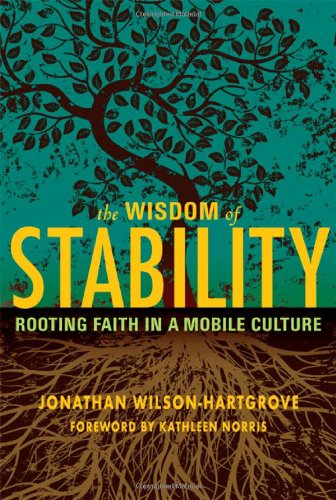 The Wisdom of Stability: Rooting Faith in a Mobile Culture Jonathan Wilson-Hartgrove (Paraclete Press) $16.99 Perhaps you will recall a list of books I developed that would supplement or be in conversation with discussions of Rod Dreher’s The Benedict Option, a list about Saint Benedict and his famous monastic rule, mostly. I wrote about this, as I do whenever I can, as it is a rich, thoughtful, stimulating and highly regarded meditation on the notion from Benedict that a good life comes from staying put, the virtue of “stability.” In a mobile culture where we don’t commit to a place (let alone a group of people) it is hard to be church, to develop roots, to live well. This book is a very fine, enriching rumination with a nice foreword by Kathleen Norris.
The Wisdom of Stability: Rooting Faith in a Mobile Culture Jonathan Wilson-Hartgrove (Paraclete Press) $16.99 Perhaps you will recall a list of books I developed that would supplement or be in conversation with discussions of Rod Dreher’s The Benedict Option, a list about Saint Benedict and his famous monastic rule, mostly. I wrote about this, as I do whenever I can, as it is a rich, thoughtful, stimulating and highly regarded meditation on the notion from Benedict that a good life comes from staying put, the virtue of “stability.” In a mobile culture where we don’t commit to a place (let alone a group of people) it is hard to be church, to develop roots, to live well. This book is a very fine, enriching rumination with a nice foreword by Kathleen Norris.
 Beyond Homelessness: Christian Faith in a Culture of Displacement Brian Walsh & Steven Bouma-Prediger (Eerdmans) $29.00 Oh my, I mentioned this above, and really meant it — it is an amazing work about a sense of place, about the motifs of exile and homecoming in Scripture, and how that might influence our own sense of calling to the task of radical home-making, being stewards of God’s home, here on Earth. If redemption is a coming home to a restored Eden, then environmental stewardship and water-shed attentive sorts of discipleship is of utmost importance, preparing now and pointing the way to a renewal of our creational home. This book is very serious and one of the most important volumes I’ve ever read. Order it today to study seriously what it means to be at home and to be a home-maker in a culture that does not value such things. Or consider it a studious follow-up to the splendor of Pollock Michel’s beautiful Keeping Place.
Beyond Homelessness: Christian Faith in a Culture of Displacement Brian Walsh & Steven Bouma-Prediger (Eerdmans) $29.00 Oh my, I mentioned this above, and really meant it — it is an amazing work about a sense of place, about the motifs of exile and homecoming in Scripture, and how that might influence our own sense of calling to the task of radical home-making, being stewards of God’s home, here on Earth. If redemption is a coming home to a restored Eden, then environmental stewardship and water-shed attentive sorts of discipleship is of utmost importance, preparing now and pointing the way to a renewal of our creational home. This book is very serious and one of the most important volumes I’ve ever read. Order it today to study seriously what it means to be at home and to be a home-maker in a culture that does not value such things. Or consider it a studious follow-up to the splendor of Pollock Michel’s beautiful Keeping Place.
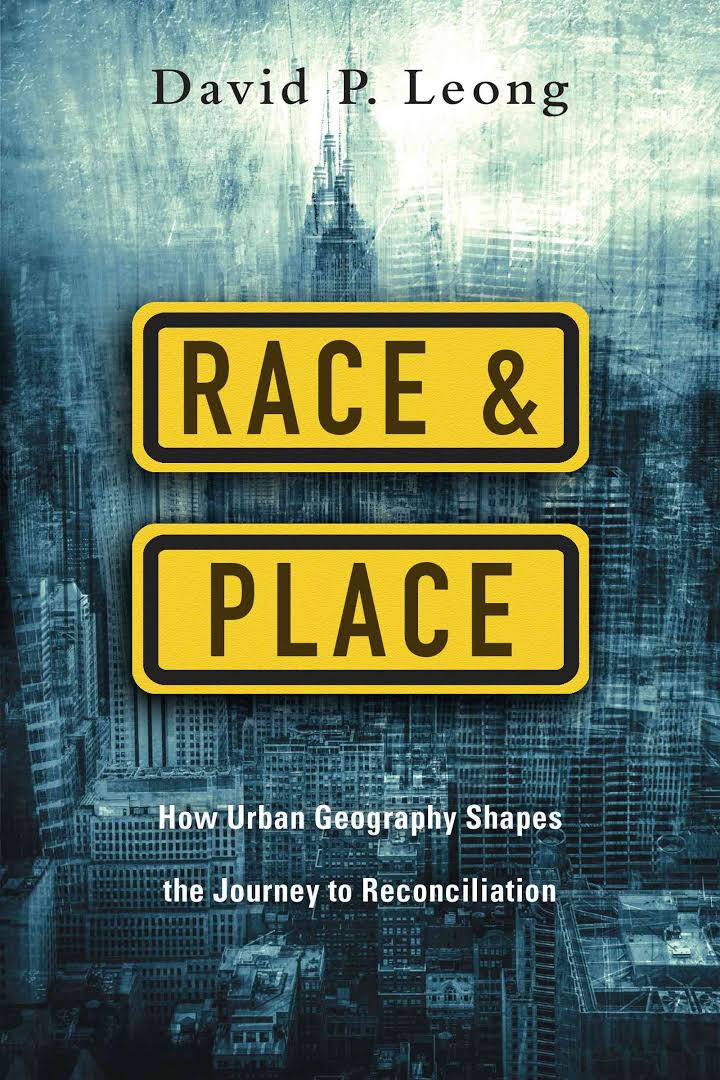 Race and Place: How Urban Geography Shapes the Journey to Reconciliation David Leong (IVP) $16.00 It is simply not true that it is new agronomists or rural folks that develop a sense of place, and although a few of the above writers are small town or rural, some, above, are not. (Oh, please read Renovate, mentioned above by my acquaintance Leonce Crump, an urban, black pastor who cites Wendell Berry!) Not only is it a myth that those who care about place are quaint and rural, it is, as a matter of fact, simply not true that all African American’s in North America are urban. (Hey, I’ve had some great conversation about fishing with black men and women!) Anyway, having said that, it does seem that Jen Pollock’s book doesn’t speak much about race and racism, a topic that is deeply entwined with American geography. This fine book, which I reviewed favorably when it came out a few months ago, is the book to read to bring a reorganization of the relationship of race and place. What a rare voice, what an important contribution. This book works well, and serves readers with insight on various levels on several topics. A win, win, win, they say, well worth having.
Race and Place: How Urban Geography Shapes the Journey to Reconciliation David Leong (IVP) $16.00 It is simply not true that it is new agronomists or rural folks that develop a sense of place, and although a few of the above writers are small town or rural, some, above, are not. (Oh, please read Renovate, mentioned above by my acquaintance Leonce Crump, an urban, black pastor who cites Wendell Berry!) Not only is it a myth that those who care about place are quaint and rural, it is, as a matter of fact, simply not true that all African American’s in North America are urban. (Hey, I’ve had some great conversation about fishing with black men and women!) Anyway, having said that, it does seem that Jen Pollock’s book doesn’t speak much about race and racism, a topic that is deeply entwined with American geography. This fine book, which I reviewed favorably when it came out a few months ago, is the book to read to bring a reorganization of the relationship of race and place. What a rare voice, what an important contribution. This book works well, and serves readers with insight on various levels on several topics. A win, win, win, they say, well worth having.

BookNotes
DISCOUNT
ANY ITEM MENTIONED
10% off
order here
takes you to the secure Hearts & Minds order form page
just tell us what you want
inquire here
if you have questions or need more information
just ask us what you want to know
Hearts & Minds 234 East Main Street Dallastown, PA 17313
read@heartsandmindsbooks.com
717-246-3333
